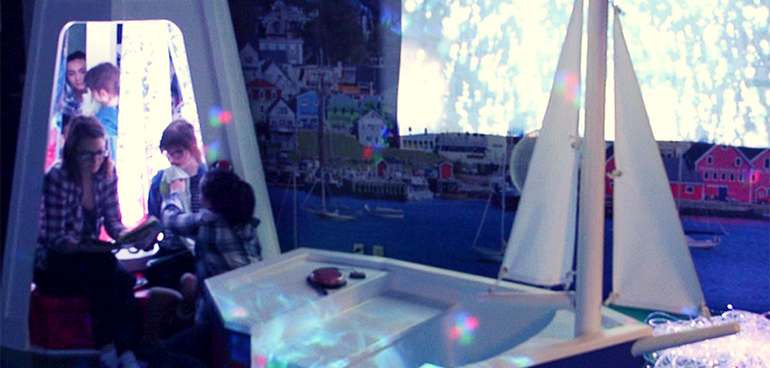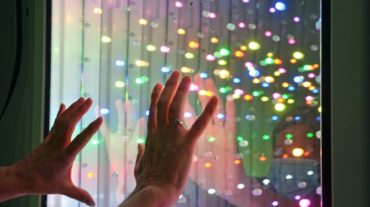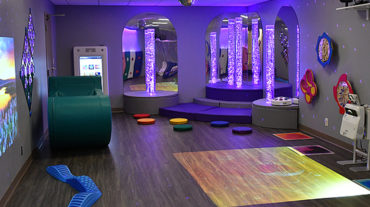Academic life is slowly becoming more engaged with the outside world—and students are leading the way
Maclean's magazine recently featured Acadia University's S.M.I.L.E. (Sensory Motor Instructional Leadership Experience) program in an article. The following is an excerpt, highlighting the university-community engagement project:
During orientation two years ago, Acadia president Ray Ivany watched as hundreds of students streamed across campus to the science building one evening. “What’s on tonight?” he thought, then realized it was a volunteer session for the university’s signature community engagement project—an activity-based therapy program for disabled children and youth.
S.M.I.L.E.—Sensory Motor Instructional Leadership Experience—is an academic-based program that uses swimming, gymnastics and sports to help those with mental and physical disabilities develop motor, social and intellectual skills. Created in 1982 by an Acadia professor, the program now attracts 280 children a year from Wolfville-area schools, who show up at the university’s athletic facilities four times a week for sessions led by 450 student volunteers. “It’s part of the culture here now at Acadia,” says S.M.I.L.E. director Roxanne Seaman, a professor of kinesiology. “It has grown beyond what anyone had imagined.”
Similar programs offered elsewhere are often tied to kinesiology courses, but S.M.I.L.E. recruits volunteers from across the campus: business, nutrition and music students contribute discipline-based expertise while team coaches and others volunteer their time too. With fundraising by the Acadia Student Union and others, the program last year installed a Snoezelen room, a therapeutic space for relaxation or stimulation activities for those with sensory disorders.
Lillie Coolen, a 2016 kinesiology graduate who returned to Acadia this year for additional courses to apply for medical school, says her five years as a volunteer (and now a student program director) taught her about leadership, communication and empathy. “You go to university expecting to grow intellectually and theoretically,” she says. “My ability to understand people and see things from their perspective; that is something you only get with a hands-on learning experience like S.M.I.L.E.”
Continue reading the Maclean's article, How universities are working to shatter the ivory tower.
Learn more about Acadia's S.M.I.L.E. program.
Read this article on the Acadia University site.





